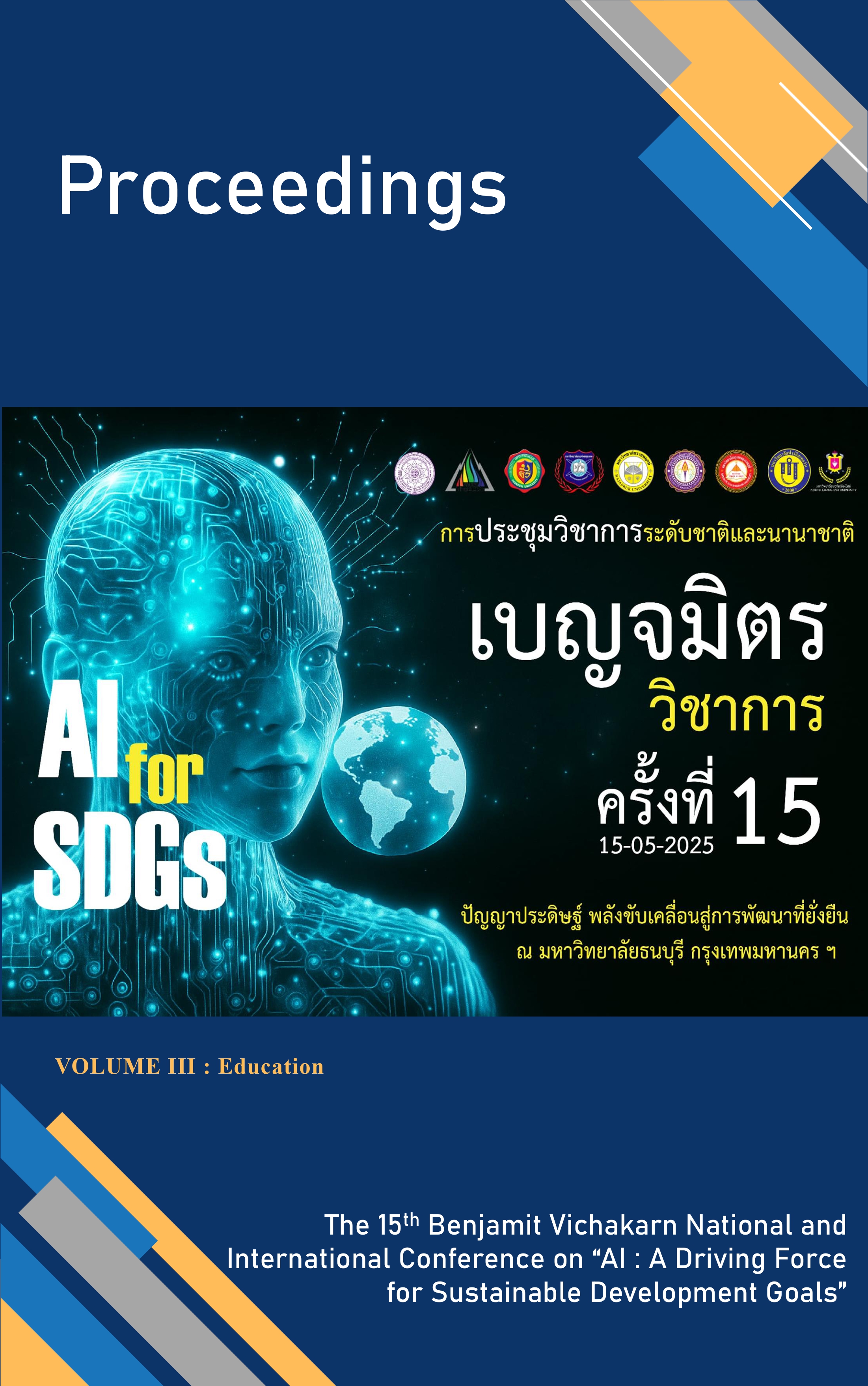The Development of Basic Mathematical Skills in Numbers and Numerals for First-Year Kindergarten Students through Educational Game Experiences from Ban Phaeo Wittaya (TeeTong) Math Games for Kid: Learning Application
Main Article Content
Abstract
The purposes of this study were to: 1) compare the basic mathematical skills in number and numeracy of first-year kindergarten students before and after experiencing educational games from the "Math Games for Kids: Learning" application, and 2) compare the basic mathematical skills in number and numeracy of first-year kindergarten students after experiencing educational games from the "Math Games for Kids: Learning" application with the 70% criterion. The sample consisted of 22 first-year kindergarten students from class 1/2 from Ban Phaeo Wittaya (Tee Tong) School, selected using cluster random sampling. The research instruments included: 1) five educational game lesson plans with an average appropriateness level between 4.08-4.22, and 2) a 30-item basic mathematics skills test with difficulty indices between 0.33-0.61, discrimination indices between 0.45-0.77, and a reliability of 0.84. Data analysis was performed using t-tests for Dependent Samples and t-tests for One Sample.
The results revealed that 1) first-year kindergarten students who received educational game experiences from the Math Games for kids: Learning application had higher basic mathematics skills scores after the experience than before the experience, with statistical significance at the .01 level, and 2) 86.36 percent of all first-year kindergarten students who received educational game experiences from the Math Games for kids: Learning application had basic mathematics skills scores that passed the 70 percent criterion of the full score, with the average score of basic mathematics skills after the experience being higher than the 70 percent criterion, with statistical significance at the .05 level.

